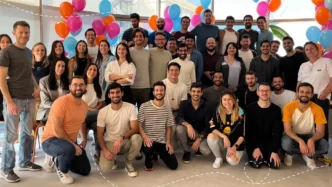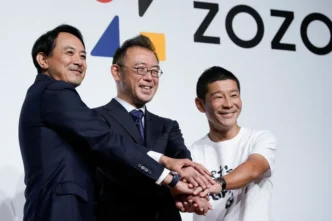Most voice AI tools only transcribe speech. But that’s just one part of the conversation. They often miss key context—like who’s speaking, how they sound, and what their tone implies. French startup pyannoteAI is changing that with Speaker Intelligence AI.
Its technology goes beyond words. It can recognize individual voices accurately, even across languages or noisy environments. Now, the company has raised $9 million in seed funding to take this innovation further.
Supported by Leaders in AI
The funding was co-led by Crane Venture Partners and Serena, with support from leading angels. Notable backers include Julien Chaumond, CTO at HuggingFace, and Alexis Conneau, a former researcher at Meta and OpenAI. He also co-founded WaveForms AI.
With this capital, pyannoteAI plans to move beyond open source. Its next step is building enterprise-ready tools for companies that process large amounts of voice data. These tools will offer fast and accurate real-time speaker recognition.
Closing the Gaps in Conversational AI
Founded in 2024 by Hervé Bredin, Vincent Molina, and Juan Coria, pyannoteAI wants to bridge the gap between basic transcription and full conversation understanding. Their tech doesn’t just capture what’s said—it also identifies who’s speaking and how they speak.
This insight matters in real-world scenarios. Think of busy customer service lines, healthcare settings, or team meetings. Knowing the speaker helps organizations act on the right data and improves how systems understand speech.
Built to Handle Real Conversations
Voice AI often struggles with natural speech. Pauses, fast talkers, emotions, or regional accents throw off typical transcription tools. pyannoteAI’s system handles this well. It first separates each voice. Then it analyzes how each speaker interacts—creating richer, more useful transcripts.
This layer of voice intelligence supports many industries. In customer support, it distinguishes agent from client. In healthcare, it connects speech to specific doctors or patients. For media, it powers precise dubbing and subtitling.
A Global Developer Community Behind It
pyannoteAI’s open-source base helped it grow quickly. Over 100,000 developers use its tools globally. It also logs around 45 million monthly downloads on HuggingFace. This active community helped improve its software and prove market demand.
The company now offers a premium version too. It’s faster and more accurate—20% better than top tools and twice as fast as its free version. That makes speaker diarization affordable for more businesses.
Voice as a Source of Intelligence
pyannoteAI wants people to treat voice data differently. Not just as words—but as a mix of tone, rhythm, and speaker identity. Its Speaker Intelligence AI reveals hidden layers in conversations that regular transcription misses.
This shift unlocks smarter applications. From compliance tools to virtual assistants, and from content moderation to live translation, the use cases are expanding. In live events, for example, it enables speaker tracking in real time—a game-changer for translation and localization.
Aiming for Widespread Impact
With its new funding, pyannoteAI is set to expand. It plans to reach sectors that rely on accurate voice data—like finance, customer experience, and healthcare. These industries need real-time, reliable, and speaker-aware tools.
“Voice is more than just words,” said Hervé Bredin, co-founder and former CNRS research scientist. “For years, we’ve worked on technology that recognizes each voice in complex conversations. We’re now bringing this power to the business world.”
“Our goal is to make Speaker Intelligence AI as universal as speech itself,” added Vincent Molina, co-founder of pyannoteAI. “We want every company to benefit from tools that understand not just the message, but also the messenger.”
Investors agree. “pyannoteAI adds a powerful new layer to voice AI,” said Morgane Zerath of Crane. “They’re not just transcribing—they’re turning voice into intelligence.”
Matthieu Lavergne of Serena echoed the sentiment: “They’ve built the foundation of modern voice tech. Their move from open source to enterprise shows how strong the demand for Speaker Intelligence has become.”













